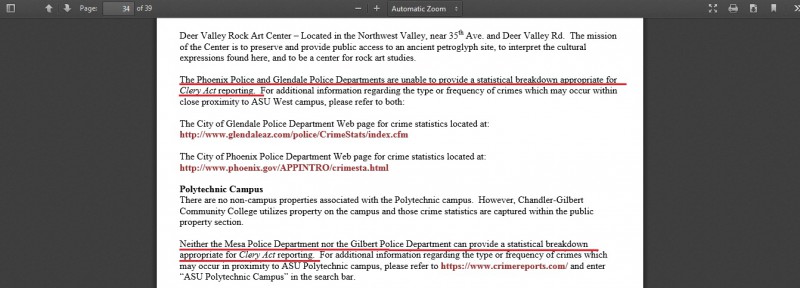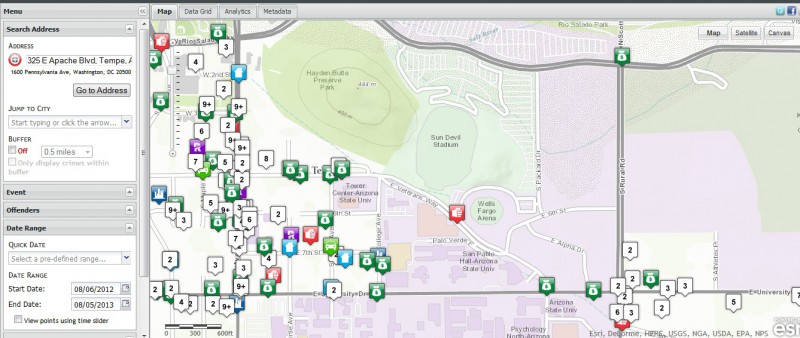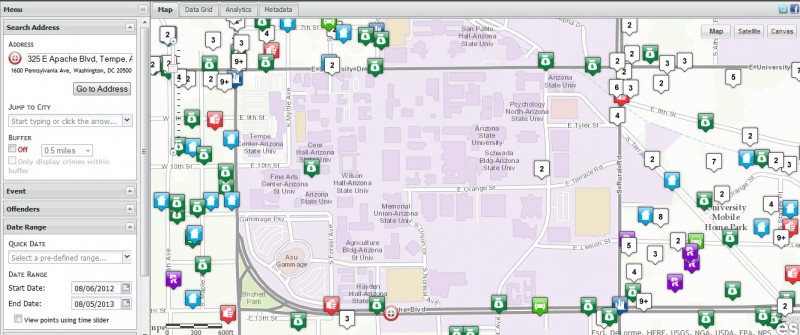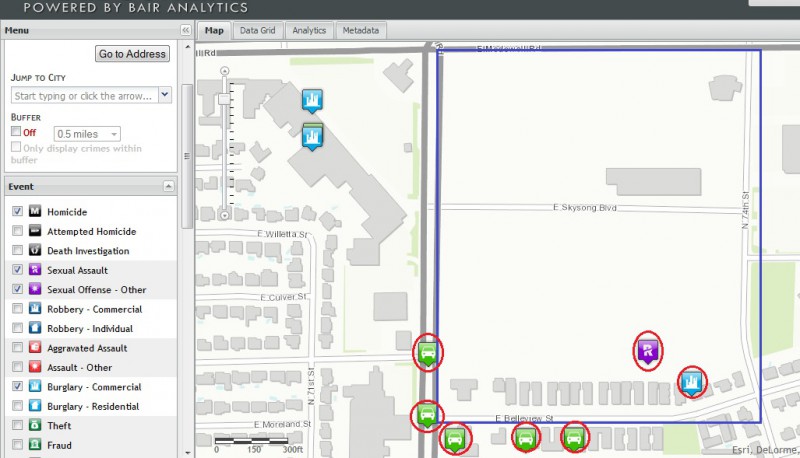This is a long article but definitely worth the read. It illustrates how the head of ASU’s HR, Kevin Salcido, has repeatedly been informed of issues among his faculty members (whether they are professors accused of sexual harassment, or a Police Chief accused of incompetence), and has repeatedly failed to take appropriate and timely action against university employees.
The federal government confirmed Thursday that Arizona State University is under investigation for the possible mishandling of a report of sexual assault or harassment.
An ASU alum wants to trigger a second inquiry.
Jasmine Lester said she plans to file a Title IX complaint against the school sometime in the next few weeks.
“Title IX of the Education Amendments of 1972 prohibits discrimination on the basis of sex in all education
programs or activities that receive federal financial assistance,” according to a U.S. Department of Education news release.
ASU is one of dozens of schools nationwide with an active Title IX investigation involving sexual assault or harassment, the Thursday release said.
Lester said she will file her complaint because, among other reasons, a university administrator discouraged her from filing a sexual harassment complaint within the university system.
Lester said a professor flirted with her for more than a year, took her out for drinks, and created “sexual tension.”
“‘We’re talking about sexual harassment as more of a shove you up against the wall kind of thing,'” the school’s Title IX coordinator said, according to Lester.
After Lester persisted and filed a report, the school found no evidence of sexual harassment, Lester said.
She said parties with a stake in the investigation went on a smear campaign against her, another reason for the federal filing.
Multiple calls to ASU for comment were not returned. As such, details of Lester’s complaint with the school could not be confirmed.
What is interesting about this article is Jasmine Lester previously met with the head of ASU’s Human Resources department, Kevin Salcido (you can view the transcript of the discussion here). In this discussion, Jasmine and another individual mention to Salcido how some of Jasmine’s concerns regarding inappropriate behavior by a faculty member were brought to the attention of ASU officials, who waited three years to initiate any sort of response (Salcido responded, “it’s unfortunate that it took a while for that to make it our way”).
Salcido also avoids answering direct questions about why the faculty member was allowed continue to lead study abroad trips (where Jasmine’s incident occurred), or why it took so long to fire professors engaged in sexual relationships with students. Salcido states that if he isn’t informed about such incidents, he can’t do anything about them (despite the fact Jasmine reported her incident to both faculty members and ASU administrators).
Salcido goes on to lecture Jasmine about how the rules of evidence [in a university investigation] aren’t the same as in a criminal court, but how she needs witnesses, emails, text messages, etc. Salcido also has the nerve to state that he is speaking both as an HR person and “also as someone who was, in a prior life, a police officer”.
The lack of an appropriate and timely response Jasmine experienced with Salcido is nearly identical to the response Salcido has given to the 10+ ASUPD employees who have spoken with him. Many current and former employees have come forward to speak with Salcido directly in regards to the on-going problems occurring at ASUPD (staffing, the FTO program, supervisors engaging in illegal and unethical behavior). He has stated on several occasions that he “can’t just fire half the police department”, despite being told (again, by multiple employees) many members of the Command and training staff were/are engaged in illegal/unethical behavior. Several employees who spoke to Salcido about this topic also witnessed the negative behavior first hand, or provided Salcido with the names, dates, and documents that would prove the merits of the accusations.
In regard to the slew of former employees ASUPD has left in its wake, Salcido has more or less stated the opinions and experiences of the people who have left the university aren’t relevant to what is currently transpiring within ASU, and speaking to them would be essentially pointless.
Much like his interactions with Jasmine Lester, Salcido’s pledge to “look into” ASUPD’s problems were completely useless. When the head of the Human Resources department at the largest university in the United States is incapable of removing problem employees from the university DESPITE witnesses and evidence…it makes one wonder how many other issues Salcido has failed to act appropriately on.
P.S. Mr. Salcido, you could never be a police officer, even in a prior life. Your deliberate indifference in the face of adversity illustrates your complete lack both compassion for others and a moral compass.






